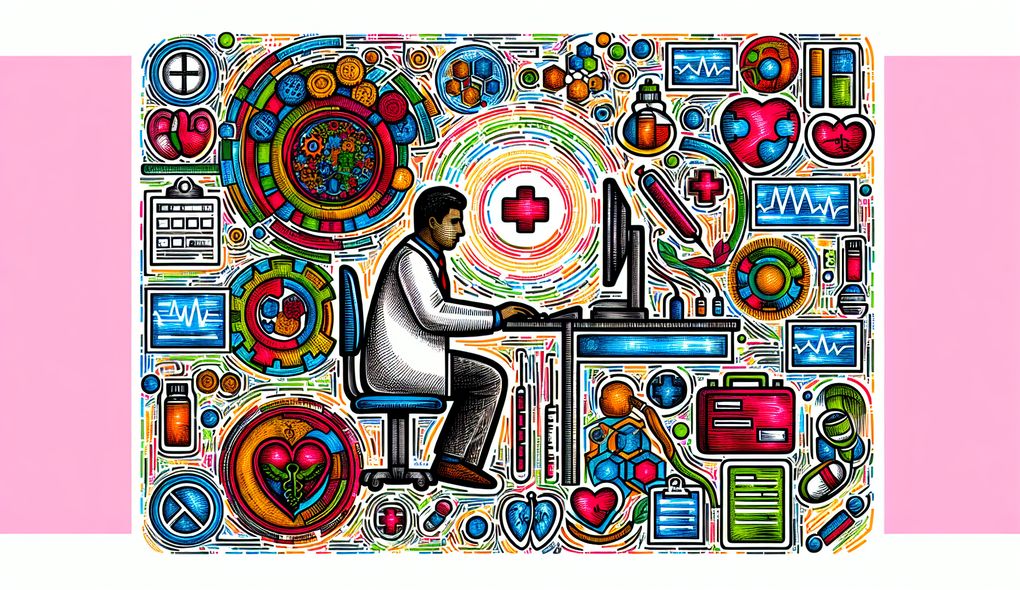How do you approach analyzing and solving complex problems in a clinical IT context?
JUNIOR LEVEL

Sample answer to the question:
When approaching complex problems in a clinical IT context, I take a systematic and analytical approach. First, I gather all the necessary information and data related to the problem at hand. Then, I carefully analyze the information to identify any underlying patterns or factors that may be contributing to the complexity. Once I have a clear understanding of the problem, I break it down into smaller, more manageable parts. This helps me to prioritize and focus on the most critical aspects. I also collaborate with other members of the team, including healthcare professionals and IT specialists, to gain different perspectives and insights. Together, we brainstorm potential solutions and evaluate their feasibility and impact. Throughout the process, I remain adaptable and open-minded, willing to adjust my approach as needed. Finally, I document the problem-solving process and provide recommendations for future reference.
Here is a more solid answer:
When faced with complex problems in a clinical IT context, I employ a structured approach that enables me to navigate through the intricacies. Firstly, I conduct a thorough analysis of the problem by gathering relevant data and information. This involves collaborating with healthcare professionals and IT specialists to gain a comprehensive understanding of the problem's context and potential implications. Once I have a clear grasp of the issue, I break it down into smaller, more manageable components. This helps me to identify the root causes and prioritize the most critical aspects to tackle. As part of my problem-solving strategy, I am open-minded and receptive to diverse perspectives and novel ideas from team members. I believe that collaboration is crucial in complex problem-solving, as it allows for a more holistic and well-rounded approach. Additionally, I am proactive in researching and leveraging the latest advancements in clinical IT systems to explore innovative solutions. Lastly, I document my problem-solving process to facilitate knowledge sharing and contribute to a continuous improvement culture.
Why is this a more solid answer?
The solid answer expands on the candidate's approach to analyzing and solving complex problems in a clinical IT context by providing more specific details and examples. It highlights the candidate's collaboration abilities and proactive mindset. However, it could benefit from further elaboration on how the candidate effectively prioritizes and manages multiple tasks.
An example of a exceptional answer:
In tackling complex problems within a clinical IT context, I have honed my analytical and problem-solving skills to deliver exceptional outcomes. To begin, I methodically gather and assess relevant data, leveraging my strong communication skills to engage with healthcare professionals and other stakeholders. This collaborative approach allows me to deeply understand the problem from various perspectives, uncover hidden patterns and interdependencies, and inform the subsequent steps. As I delve into the analysis, I employ critical thinking techniques, like root cause analysis and systems thinking, to identify the core issues and prioritize the most impactful areas for intervention. I am meticulous in considering the potential ramifications of any proposed solutions to ensure they align with data privacy regulations, such as HIPAA, and promote patient safety and satisfaction. In addition to applying best practices, I constantly stay informed about emerging trends and technologies in clinical IT to drive innovation and efficiency. This forward-thinking mindset has enabled me to leverage cutting-edge solutions and methodologies for problem-solving. To create lasting impact, I thoroughly document my steps, learnings, and best practices, fostering a culture of continuous improvement and knowledge sharing within the team and organization.
Why is this an exceptional answer?
The exceptional answer demonstrates the candidate's advanced skills and experience in analyzing and solving complex problems in a clinical IT context. It showcases their ability to gather and analyze data, collaborate effectively, think critically, stay updated on industry trends, and document their process. The answer is comprehensive and provides specific examples and techniques used by the candidate. Additionally, it emphasizes the candidate's commitment to data privacy regulations and fostering a culture of continuous improvement.
How to prepare for this question:
- Familiarize yourself with healthcare IT systems and industry trends to stay updated on the latest advancements.
- Gain experience collaborating with interdisciplinary teams to effectively communicate and work towards common goals.
- Develop a systematic and analytical approach to problem-solving, leveraging techniques like root cause analysis and systems thinking.
- Practice breaking down complex problems into manageable components and prioritizing critical aspects.
- Research and understand data privacy regulations pertinent to healthcare, such as HIPAA, and their implications on clinical IT systems.
- Document your problem-solving process, including steps taken, findings, and recommendations, to facilitate knowledge sharing and continuous improvement.
What are interviewers evaluating with this question?
- Analytical and problem-solving skills
- Collaboration and teamwork

